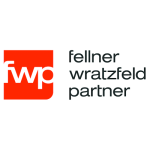Despite the COVID-19 pandemic, M&A transactions continued to take place in Austria, albeit at a somewhat slower pace, especially at the beginning of the year. According to the M&A Index 2020 published by EY Austria (Ernst & Young Global Limited), the number of transactions with Austrian participation fell from 328 to 275 in 2020 compared to 2019 (minus 16.2%). Transaction volumes, on the other hand, increased slightly by 4.1% from €12.1 billion (approximately $14.5 billion) to €12.6 billion.
The effect of the COVID-19 pandemic on companies are as diverse as the economic sectors in which they operate. The tourism industry, one of the main pillars of the Austrian economy, was hit especially hard by the COVID-19 pandemic. Although the Austrian government reacted quickly in providing substantial state aid packages, the Austrian GDP is estimated to shrink by about 7.1% in 2020 (compared to 1.4% in 2019); only a gradual recovery of about 3.6% is expected in 2021–2022.
|
|
One of the biggest developments is that W&I insurance has seen increasing use in the Austrian market |
|
|
Other sectors, however, have not been hit as hard by the COVID-19 pandemic. In terms of the number of transactions, the industrial sector took the lead in 2020 with 85 deals, followed by companies from the technology sector with 61 deals and the real estate sector with 53 transactions. In terms of published transaction volumes, the oil and gas sector was the clear first place winner with €4.1 billion – mainly due to the increase in OMV's stake in Borealis – followed by the financial sector, the technology sector and the industrial sector with a volume of more than €1.5 billion each.
The vast majority of published transactions in 2020 (260 deals) were strategic transactions – a decrease of 48 transactions compared to 2019. Transactions by financial investors (private equity, venture capital) fell from 20 to 15 deals and thus continue to play a subordinate role in the Austrian transaction market.
Four megadeals are accountable for the majority of the published transaction volume with more than €1 billion each, with the increase of OMV's stake in Borealis by around €4.1 billion, the increase of ams AG in Osram Licht by means of a control and profit and loss transfer agreement by around €1.2 billion, the takeover of CK Hutchison Networks Austria GmbH by Cellnex Telecom by €1.1 billion and the purchase of AXA subsidiaries in Poland, the Czech Republic and the Slovak Republic by UNIQA by around €1 billion.
All of these transactions show the strength of strategic players in the Austrian M&A market.
COVID-19 and recovery plans
For the first time since the EY M&A Index was established five years ago, the most money flowed into intra-Austrian deals, in the course of which around €4.5 billion was invested. These are mainly divided between two deals – around €4.1 billion for the increase in OMV's stake in Borealis and around €400 million for the purchase of an Immofinanz share package by CARPINUS Holding.
Foreign direct investments (FDI) in Austria in the first half of 2020 related in particular to the purchase of the ERBER Group by the Dutch DSM for around €1 billion as well as several medium-sized deals in the real estate sector.
The urge of Austrian investors for investments abroad, on the other hand, declined by 44% from €3.6 billion to €2 billion. These mainly include UNIQA's deals in the CEE region and the SIGNA Group (together with the Thai Central Group) in Switzerland.
The COVID-19 crisis offers possibilities for seasoned, crisis-resilient buyers and strategic and financial investors to purchase desired targets under favourable conditions. Despite the national and European aid packages, many companies will come under increasing economic pressure in 2021. Thus, even companies that have not been available for sale and/or have been offered at a much higher purchase price will enter the transaction market. An increase in new distressed M&A deals in 2021 is expected.
Legislation and policy changes
Austria does not have one specific law regulating all issues on the acquisition of companies, but rather various statutes apply depending on the specific type and form of an acquisition.
For asset deals, the regulations in section 1409 of the General Civil Code and section 38 of the Commercial Code are the most pertinent.
Section 1409 of the General Civil Code provides that a purchaser generally is jointly and severally liable with the seller towards the seller's creditors for any liabilities of the acquired business having their origin prior to the acquisition. The purchaser's liability is limited to the current net asset value of the acquired assets and applies in case the purchaser knew or should have known at the time of the purchase of the pre-existing liabilities. Section 1409 is a mandatory law and cannot be waived or amended by contract. Liability can be reduced if the purchase price payable by the buyer is used to pay off the debts of the sold business.
Section 38 of the Commercial Code provides that a legal entity, which acquires and continues a commercial business, is liable for all debts the former owner incurred in the course of business conduct, meaning even those which are not contractually agreed to be taken over by the buyer. Unlike liability under section 1409 of the General Civil Code, liability under the Commercial Code is not limited to the value of the acquired assets. Nevertheless, under Article 38 of the Commercial Code the seller and the buyer can agree to limit liability of the seller, such limitation of liability, however, being only valid if a timely notification to the commercial register is submitted or otherwise made public.
A key regulatory authority with regard to M&A transactions is the Federal Competition Authority (Bundeswettbewerbsbehörde), which is responsible for the clearance of mergers where a transaction value does not exceed the thresholds of the EC Merger Control Regulation, but exceeds the thresholds under Austrian competition law.
Further relevant authorities are the Commercial Register Courts (Firmenbuchgerichte), which register and publish transactions and reorganisations in the Austrian commercial register, and the Financial Market Authority (Finanzmarktaufsicht), which reviews banking acquisitions. Public M&A transactions regarding listed joint stock corporations (Aktiengesellschaft) are also subject to the supervision of the Austrian Takeover Commission (Übernahmekommission), which monitors compliance with the Austrian takeover regulations and decides on all matters related to the Takeover Act.
At the beginning of the COVID-19 crisis, a new Investment Control Act was announced, which came into force on July 25 2020. The new regulations aim to prevent the 'sell-out' of the Austrian economy in strategic areas.
The FDI Screening Regulation (Regulation (EU) 2019/452 establishes a framework for the screening of FDI, i.e. non-EU/EEA/Swiss, individuals or corporations into the Union) has been implemented in Austria with the entry into force of the Federal Act enacting an Investment Control Act and amending the Foreign Trade Act 2011 (Bundesgesetzes, mit dem ein Investitionskontrollgesetz erlassen und das Außenwirtschaftsgesetz 2011 geändert wird).
The prior 'lean' national investment control regime anchored in Section 25a, para 2 et seq. of the Foreign Trade Act has been consolidated in the new Investment Control Act (ICA) (Investitionskontrollgesetz – InvKG).
The new provisions significantly expand foreign investment both in terms of scope and procedure, and in particular via a more comprehensive, EU-wide coordinated control of third country investments in system-relevant Austrian companies. Legal transactions requiring approval under the ICA are deemed to be concluded ex lege subject to the condition precedent that the relevant approval is granted.
The Federal Minister for Digital and Business Affairs (Bundesministerin für Digitalisierung und Wirtschaftsstandort) is responsible for approval, and the Committee for Investment Control (Komitee für Investitionskontrolle) undertakes an advisory role.
|
|
An increase in new distressed M&A deals in 2021 is expected |
|
|
Pursuant to section 2 of the ICA, a foreign direct investment (FDI) is subject to the approval of the Federal Minister for Digital and Business Affairs (a) if the target company is active in one of the sensitive or system-relevant areas listed in the Annex to the ICA and (b) if certain voting rights are reached or exceeded or otherwise a controlling influence is acquired or a controlling influence on parts of the company is acquired through the acquisition of significant assets.
'Direct investment' is defined as the direct or indirect acquisition of an Austrian enterprise (registered office and head office in Austria), i.e. by acquisition of voting rights, a controlling influence or of material assets.
Micro-enterprises and start-ups with less than 10 employees and an annual turnover or balance sheet below €2 million are generally exempt from the authorisation requirement.
Transactions that require an ICA approval are deemed to have been concluded subject to the condition precedent that the corresponding approval is granted, which needs to be taken into account when drawing up the M&A contract. Moreover, any implementation prior to approval constitutes an offence punishable even by imprisonment.
The application of the ICA requires that the Austrian target company is active in one of the following areas listed in the Annex to the ICA:
Defence equipment and technologies, the operation of critical energy infrastructure and critical digital infrastructure, water, the operation of systems to ensure data sovereignty and – COVID-19 driven – research and development in the fields of pharmaceuticals, vaccines, medical devices and personal protective equipment (particularly sensitive sectors); and
Areas in which a threat to security or public order (including crisis and emergency preparedness), such as critical infrastructure, critical technologies, security of supply of critical resources, access to or control of sensitive data and freedom and plurality of media, may arise (other areas).
With the entry into force of the ICA, the new act also covers areas that were previously not subject to approval.
In the case of the (direct or indirect) acquisition of voting rights, the obligation to obtain approval under the regime of the ICA depends on whether certain thresholds are exceeded. Section 4 of the ICA distinguishes between the following minimum thresholds:
If the target company is active in the 'particularly sensitive sectors': 10%, 25% and 50%; and
If the target company is active in other areas that may pose a threat to security or public order, including emergency or general interest services: 25% and 50%.
The first voting right threshold for the 'particularly sensitive sectors' has been significantly lowered (from 25% to 10%) compared to the legal situation before the ICA came into force.
Section 5 of the ICA contains detailed rules for the determination of voting rights, whereby in the case of an acquisition by several foreign persons the voting rights in the company must be counted together.
The application for approval must be submitted immediately after the conclusion of the agreement (signing/commitment to the transaction) or, in the case of a public offer, immediately after the announcement of the intention to acquire.
In addition to information on the acquirer (including the beneficial owner), the target company and the transaction structure, as well as information on the business activities of the acquirer and the target company (including a description of the market and competitors), the application for approval must also contain information on the financing of the transaction and the origin of the financial sources, as well as – if foreseeable – information on whether effects on 'programmes of European interest' are to be expected (see section 6 para 4 of the ICA).
Pursuant to section 6 para 1 of the ICA, the obligation to submit an application generally applies to the acquirer(s).
In some transaction-scenarios – in order to achieve the safest possible transaction perspective at an early stage – the possibility of obtaining a clearance certificate (Unbedenklichkeitsbescheinigung), as provided by section 9 of the ICA, can be a viable alternative to an application for approval after signing.
Within two months of receipt of the complete application for a clearance certificate, either a clearance certificate is issued or a notification is given that the application will be treated as an application for approval. If no decision is issued or notification is given within this two-month period, the clearance certificate is deemed to have been granted (section 9 para 4 of the ICA).
Market norms
The Austrian legal system has a few peculiarities that are commonly misunderstood. As most M&A deals in Austria are private M&A transactions with the target being an Austrian limited liability company, the share deal must be made in the form of a notarial deed in front of an Austrian notary public. One misconception is that the notarial requirement poses a large hurdle. This is not true, as share purchase agreements (SPAs) can also be done in the English language with notaries so qualified. With the increasing foreign involvement in Austrian M&A transactions, it has become more and more common that such notarial deeds are drawn up in English.
Towards the end of 2020, the Austrian legislator implemented a significant improvement for M&A transactions by allowing electronic notarisation. The introduction of the new section 90a of the Notarial Regulation (NO) by the 4th COVID-19 Act opens up the possibility to draw up all notarial acts and other public or publicly-certified deeds by use of electronic means of communication without the need for physical presence before the notary. The new regulation came into force on January 1 2021.
The amendments to the law now bring a clear simplification and acceleration for the performance of the official notarial acts required under corporate law, which are often associated with a high level of travel and time expenditure, especially if the parties involved are located abroad.
An area that requires specific attention is Austrian stamp duty tax. Typically, stamp duty tax can become payable based upon the simple fact that a written document is being drawn up in Austria. Though a SPA itself is not subject to stamp duty tax, suretyship arrangements whereby one company is obliged to step in and fulfil a liability if, for example, a subsidiary does not perform can trigger stamp duty.
For real estate transactions, care needs to be taken in the structuring so as not to trigger real estate transfer tax, which also can apply to share deals.
The COVID-19 pandemic has brought liberation by accelerating digitalisation in M&A transactions. Since mid-March 2020, the Austrian government has issued new laws and regulations that enhance the use of technology in corporate law. The regulations give shareholders, as well as executive and supervisory board members, the possibility to hold virtual corporate meetings via video and/or telephone conference, and pass legally binding resolutions while maintaining physical distance. This can be important for board decisions that need to be taken to get an M&A transaction to the finish line.
The virtual execution of notarial deeds was implemented by the legislator. As in Austrian corporate law and M&A transactions notarial deeds are often required this represents a relief for M&A transactions.
Some of these rules are still limited until the end of 2021 and linked to the COVID-19 pandemic, whereas others have already been introduced into the legal framework and it can be assumed that most of them will be introduced permanently into Austria's legal framework.
Public M&A
Most factors regarding the acquisition of a controlling stake in a public company are regulated in the Austrian Takeover Act. A compulsory public offer must be made to the other shareholders when a shareholder acquires a stake of 30% or more. Hostile bids do not have different rules. In a friendly bid however, the bidder is commonly given the opportunity to carry out due diligence, while in a hostile bid the bidder is generally restricted to publicly available information. In hostile takeovers the management board is obliged to remain neutral. Due to the limited number of Austrian-listed companies, hostile bids are unusual in Austria.
Pursuant to section 5 para 2 of the Austrian Takeover Act, the intention to acquire a stake in a public company needs to be communicated as soon as there are rumours that could alter the stock price. The bidder that intends to place an offer must also inform the target's representatives immediately, notifying them that the executive board and the supervisory board have decided to place an offer, or that conditions have been met that oblige them to place an offer.
Public takeover offers need to be executed in a way that minimise market manipulation and insider trading. The members of the target company also have corresponding secrecy and transparency duties. A further condition is the notification of the workers council pursuant to section 11 para 3 of the Austrian Takeover Act. A financial expert must also be included in the public takeover offer process.
As for break fees, in public M&A transactions these are rather uncommon, partly due to legal restrictions.
Private M&A
One of the biggest developments is that warranty and indemnity (W&I) insurance is no longer a purely theoretical consideration and has seen increasing use in the Austrian market. Private equity (PE) buyers are at the forefront of this development. Given the bridge function W&I insurance serves between buyers needing increased contractual protection and sellers for various reasons not willing to provide this, a further increase in its use is expected.
Earn-outs and escrows have also become more common, but whether a buyer can successfully negotiate these is very deal specific. Whereas locked-box mechanisms are common in auction settings, closing accounts often are agreed upon in one-on-one negotiated deals.
In the case of a private takeover, typically offers prior to the signing of definitive agreements are conditional upon a satisfactory due diligence, the completion of transaction documentation and the approvals of internal boards.
In terms of governing law, the parties to a private M&A SPA generally agree on Austrian substantive law and dispute resolution in Austria. For the mode of transfer, which is necessary for the transfer of shares in a limited liability company, Austrian law is mandatorily applied. This means that the SPA for such transfers needs to be in the form of a notarial deed.
As for the exit environment, IPOs do not play a significant role in the Austrian market. Generally, a shareholder interested in selling its shareholding will either seek potential purchasers and negotiate exclusively or will initiate a structured bidding process to which interested parties are invited. As the Austrian market is rather small, the shareholder will very often be aware of potentially interested parties in the domestic market and address them directly.
Looking ahead
Many M&A deals in Austria were ultimately postponed or cancelled due to COVID-19. Nevertheless, the immense potential of M&A deals should by no means be underestimated. Even if a complete recovery of the market cannot be assumed in the short term, there will be a gradual stabilisation in the medium term. In addition, an uptick in distressed M&A can be expected as COVID-19 relief programmes start to run out.
The final few months of 2020 showed ingenuity and great flexibility on the part of those players getting deals done. Digitalisation has received an immense boost and now enables M&A transactions to run completely digitally.
Overall, the market will become a different one than it was before the crisis. Whereas in 2019, it was still possible to speak more of a seller's market, in which sellers were able to select the suitable buyer from several interested parties, achieve high purchase prices and enforce seller-favourable provisions in purchase agreements, there may well be a shift towards a more buyer friendly market.
As the economy recovers, those companies that have come through the COVID-19 crisis in good shape, in many cases large companies such as industrials, will try to expand their market shares and acquire assets and know-how at low prices through clever acquisitions of competitors and start-ups that have come under pressure. PE funds are also expected to become more active, having accumulated liquidity and thus on the lookout for investment opportunities. There is a particularly good outlook for companies in the pharmaceutical and healthcare sectors, technology companies, companies concerned with sustainability and the environment and online retailers. In these areas, investor demand is likely to be even stronger than before the crisis.
Click here to read all chapters from the IFLR M&A Report 2021

Markus Fellner
Partner
Fellner Wratzfeld & Partner
T: +43 1 537 70 311
Markus Fellner is a founding partner and the head of Fellner Wratzfeld & Partner's corporate and M&A practice. He also specialises in banking and finance, insolvency law and restructuring and dispute resolution.
Markus has a law degree from the University of Vienna and a business degree from the Vienna University of Economics and Business. He was admitted to the Austrian Bar in 1998 and lectures at various institutions.

Paul Luiki
Partner
Fellner Wratzfeld & Partner
T: +43 1 537 70 315
Paul Luiki is a US native partner at Fellner Wratzfeld & Partner specialising in the full range of M&A transactions. He has a specific focus on cross-border transactions, in particular in the CEE and US regions. His other fields of specialisation are contract law and commercial dispute resolution.
Paul is a graduate of the University of Vienna and completed a JD at the University of Iowa. He is also a frequent lecturer on M&A and joint ventures.

Elisa Maria Kaplenig
Attorney at law
Fellner Wratzfeld & Partner
T: +43 1 537 70 364
Elisa Maria Kaplenig is an attorney at law at Fellner Wratzfeld & Partner specialising in corporate and M&A, antitrust and competition law and corporate litigation.
Elisa obtained a law degree, as well as an international business administration degree, from the University of Vienna and was admitted to the Austrian Bar in January 2020.




